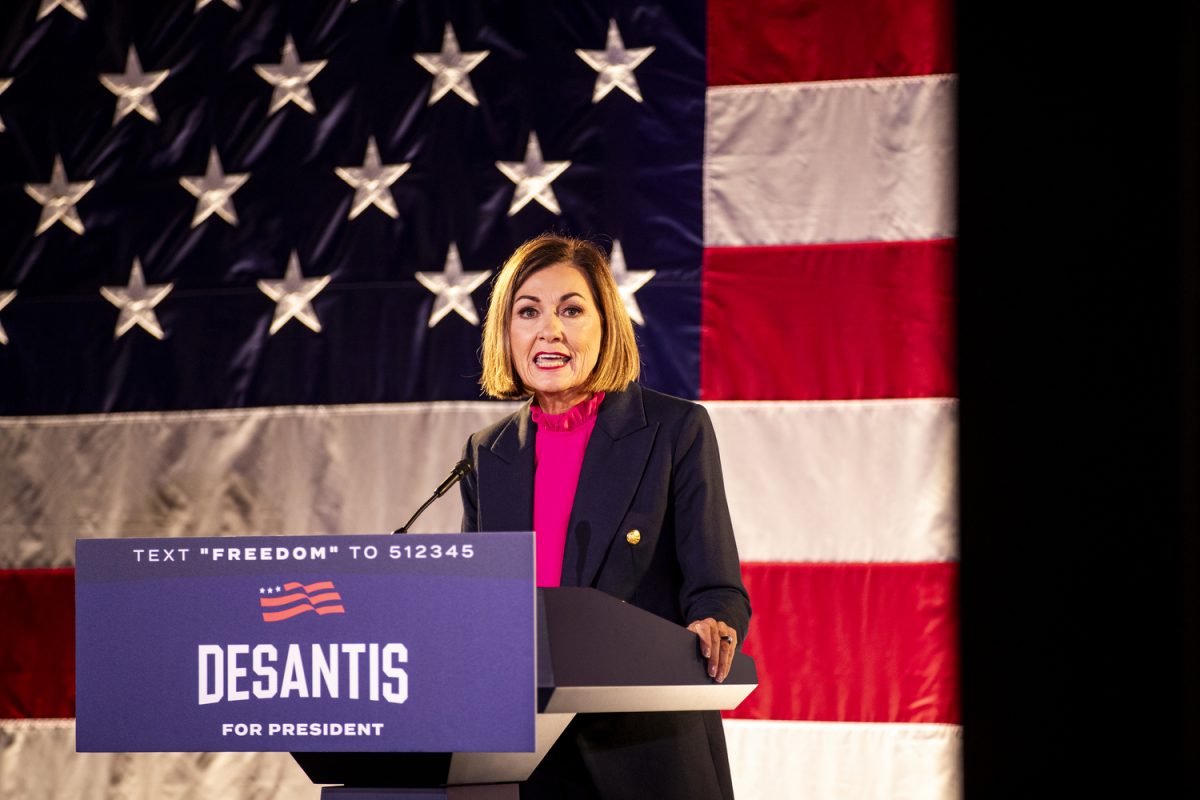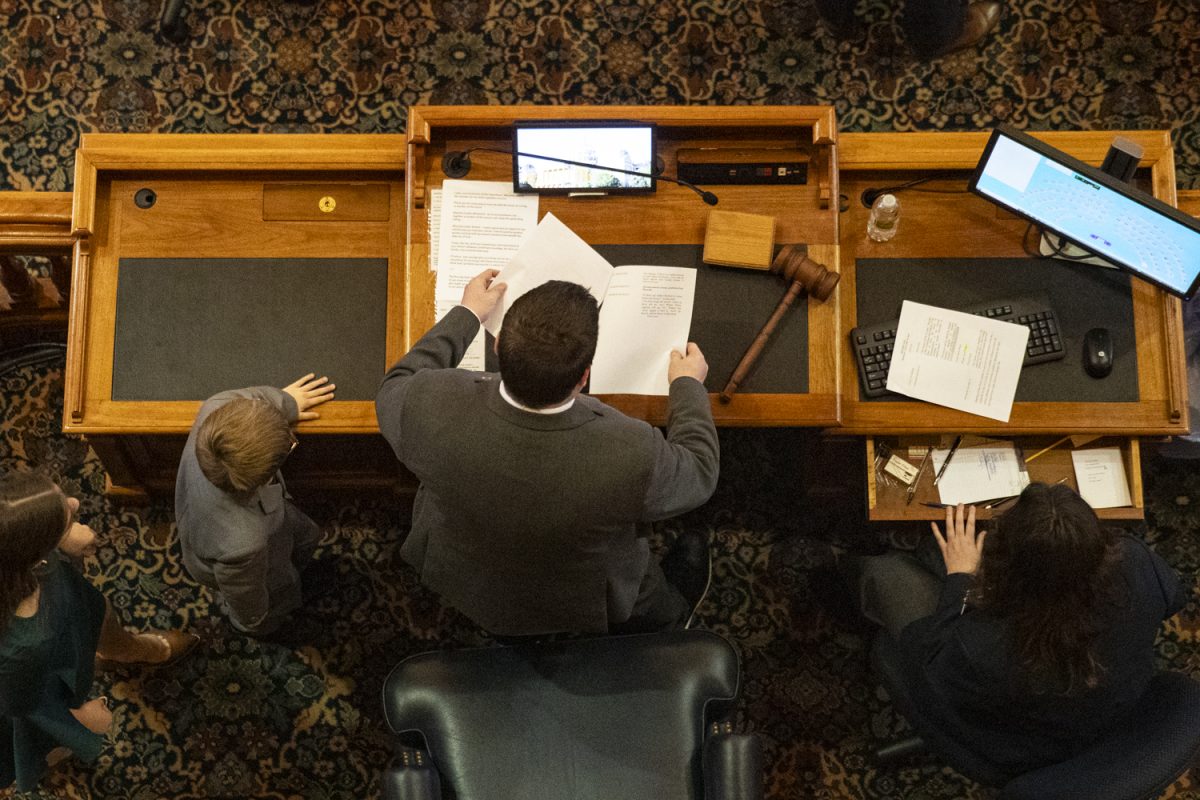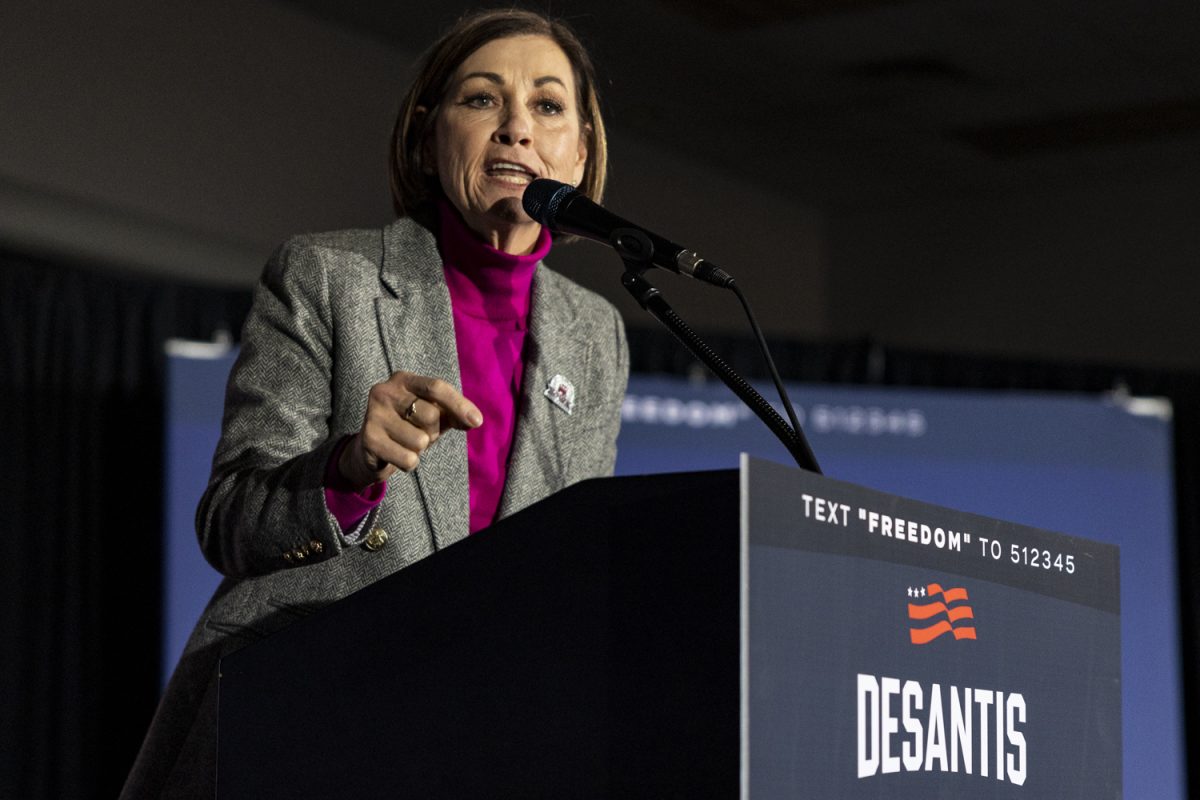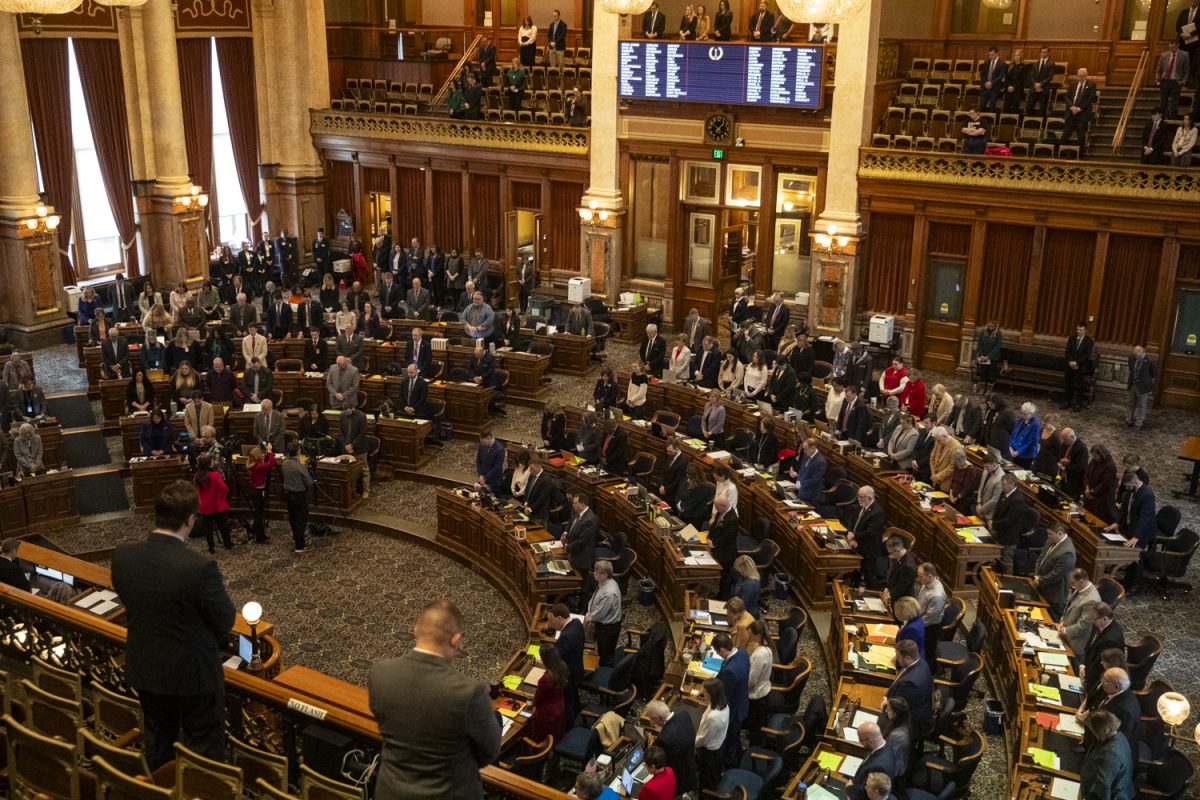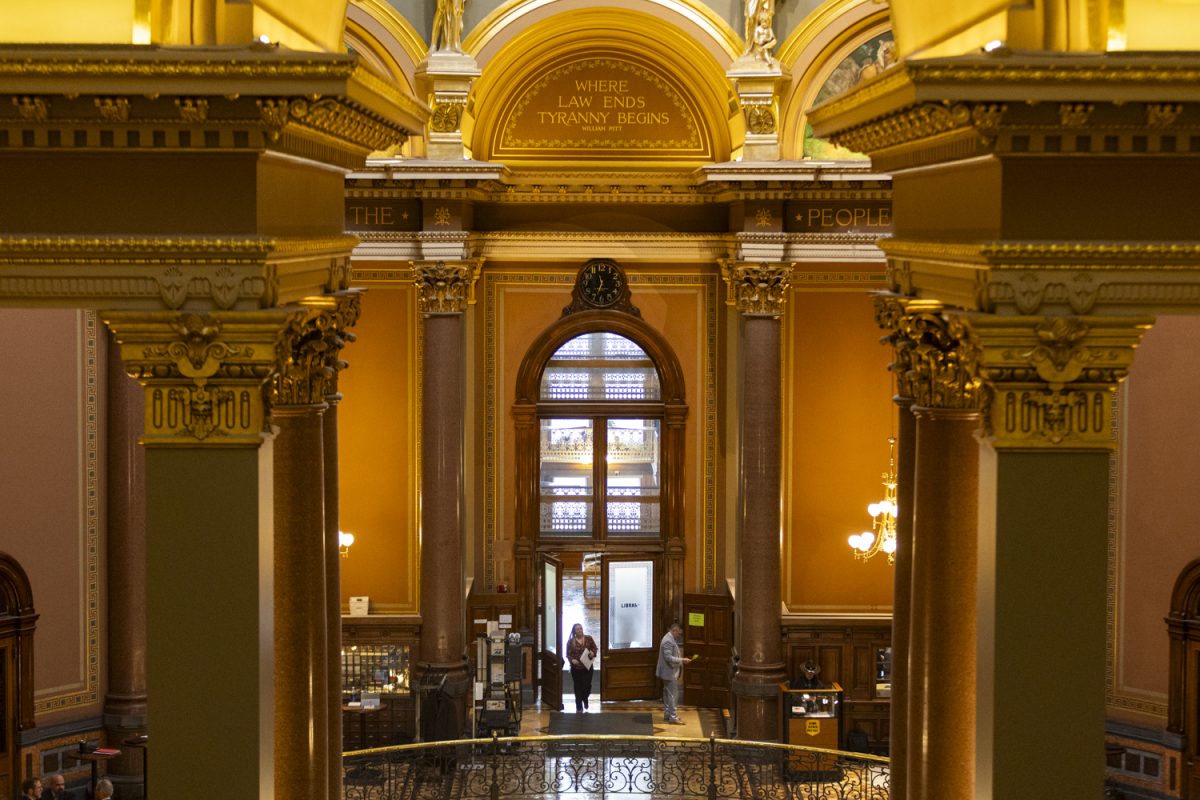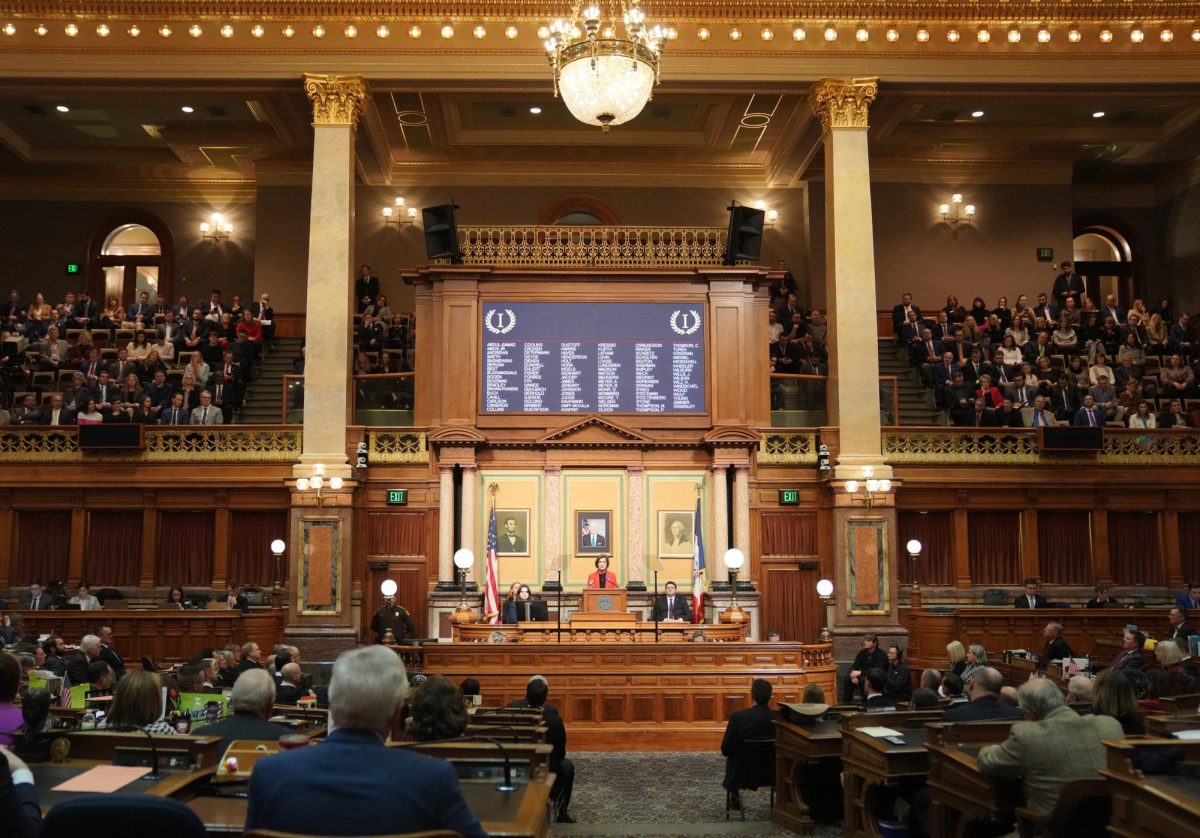It has been seven years since a woman has served on the Iowa Supreme Court, but that is set to change shortly. The three finalists for the open seat on the Supreme Court have been chosen — and they’re all women.
After interviewing and reviewing the applications of 21 candidates in the beginning of July, the State Judicial Nomination Commission has selected three nominees from the pool of candidates. The final selection is now in the hands of Gov. Kim Reynolds, who will decide by early August which of the nominees to appoint to the position.
The commission chose Terri Combs, a private-practice attorney, Susan Christensen, a district court judge, and Kellyann Lekar, a chief district court judge, as finalists for the open seat.
The seat opened up after Justice Bruce Zager announced that he will retire in September. This is the first vacancy on the court since 2011, when Zager and two other justices were appointed by former Gov. Terry Branstad. This will be Reynolds’ first appointment.
“Above all else, the governor is looking for someone who respects the rule of law and respects the important role of the judiciary,” said Brenna Smith, communications director for Reynolds, in an email. “The governor will be evaluating and interviewing nominees over the coming weeks before making her final decisions.”
The Iowa Supreme Court has been made up of only men since Chief Justice Marsha Ternus and two other judges were ousted in 2010 following the ruling that made same-sex marriage legal in the state. Iowa is the only state in the country with an all-male Supreme Court, but that is set to change.
Of the 21 candidates that were considered for the position, 14 of them were women. While gender was not a determining factor in the commission’s decision, it was taken into account.
Iowa has operated under a merit selection process for selecting Supreme Court justices since a constitutional amendment was approved by Iowa voters in 1962. This method is “designed to emphasize the professional qualifications of applicants for judicial appointment and minimize partisan politics” according to the Iowa Judicial Branch website.
Candidates submitted written applications for the open position at the end of June and were then interviewed both one-on-one and in a panel setting by the State Judicial Nominating Commission in the beginning of July. The commission comprises 17 members, including eight lawyers and eight non-lawyers, who serve one six-year term. The chair of the commission, Justice David Wiggins, is the most senior justice of the Iowa Supreme Court other than the chief justice.
In order to apply for the position, candidates must be residents in the state, licensed lawyers, and able to serve a full six-year term before turning 72.
Get to Know the Finalists
Terri Combs
Read Combs’ application | Watch Combs’ panel interview
Current Employment: Attorney and partner at Faegre Baker Daniels LLP
City of Residence: West Des Moines
Age: 61
Education: Southwest Missouri State University, Georgetown University Law Center
Combs has practiced law for 35 years. She was an attorney in New York City before moving to Faegre Baker Daniels LLP in 1994, where she has practiced since. Her current practice is primarily financial-services litigation.
“The rule of law and respect for our judicial institutions are critical to our society,” Combs said in her application. “Being able to foster that and serve Iowans would allow me to bring my experience, temperament, and scholarship to this important role.
When asked how her appointment would enhance the court, Combs responded, “I have no personal agenda other than to uphold the law and to enhance respect for the court and its authority.”
Susan Christensen
Read Christensen’s application | Watch Christensen’s panel interview
Current Employment: District Court Judge for the Fourth Judicial District
City of Residence: Harlan
Age: 56
Education: Judson College, Creighton University School of Law
Susan Christensen practiced primarily family law until serving as district associate judge for Iowa’s 4th District beginning in 2007.
“I enjoy working as a judge and making systemic improvements to our judicial branch through involvement in numerous committees and task forces,” Christensen said in her application. “It provides me with an opportunity to do those same things — decide cases and improve Iowa’s overall judicial system — on a statewide basis.”
Christensen hopes to bring her well-rounded professional and personal experience to the Iowa Supreme Court.
“I believe our Supreme Court should reflect the people whom we serve — people from all parts of our state who have busy lives, challenging situations, and deep devotion to those we love and want to protect,” Christensen said. “I am the person who can provide that representation.”
Christensen is also the daughter of former Iowa Supreme Court Justice Jerry Larson, who died in April. Larson was the longest serving justice in Iowa history, serving from 1978 until 2008.
Kellyann Lekar
Read Lekar’s application | Watch Lekar’s panel interview
Current Employment: Chief District Court Judge for the First Judicial District
City of Residence: Waterloo
Age: 50
Education: Iowa State University, University of Iowa College of Law
Kellyann Lekar practiced general civil law for more than 10 years before being appointed to the bench in Iowa’s First District in 2005. She was then appointed to chief judge in January 2012.
“I am professionally motivated not only to serve as a judge, but to understand the role of the Judicial Branch in the government of the state of Iowa and to strive to constantly assess and improve the quality of service the Judicial Branch provides to our citizens,” Lekar said when asked in the application why she is seeking the position.
Lekar hopes to bring a genuine reverence to service if chosen for the spot on the Supreme Court.





